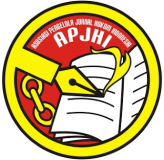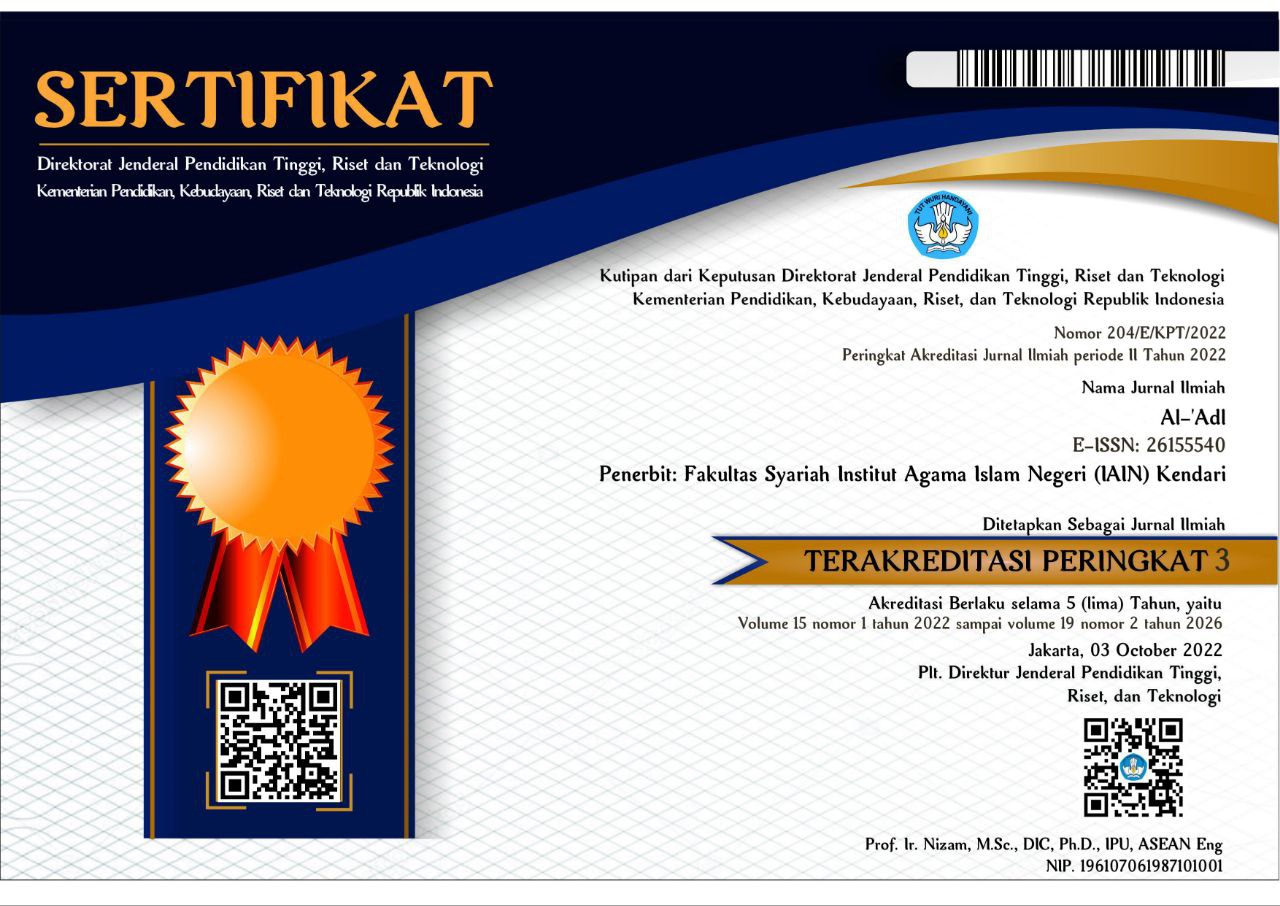Online Lending: Choice or Threat A Review of Sharia Law
Abstract
Keywords
Full Text:
PDFReferences
Adi. “Ini Daftar Perusahaan Pinjol Yang Ditutup OJK Per April 2022.” https://keuangan.kontan.co.id/news/ini-daftar-perusahaan-pinjol-ilegal-yang-ditutup-ojk-per-april-2022, 2022.
Adnan, Amirah Madihah, Norhoneydayatie Abdul Manap, Zamzuri Zakaria, Mohd Al Adib Samuri, Mat Noor Mat Zain, Azlin Alisa Ahmad, Tze Chin Ong, and Farhah Abdullah. “Definisi ‘Penipuan’ Dalam Pembelian Dalam Talian: Analisis Terhadap Peruntukan Undang-Undang Di Malaysia.” International Journal of Law, Government and Communication 5, no. 21 (2020).
Azwar Iskandar, and Khaerul Aqbar. “Kedudukan Ilmu Ekonomi Islam Di Antara Ilmu Ekonomi Dan Fikih Muamalah : Analisis Problematika Epistemologis.” NUKHBATUL ’ULUM : Jurnal Bidang Kajian Islam 5, no. 2 (2019). https://doi.org/10.36701/nukhbah.v5i2.77.
Biancone, Paolo P, Silvana Secinaro, and Mohamad Kamal. “Crowdfunding and Fintech: Business Model Sharia Compliant.” European Journal of Islamic Finance 12 (2019).
Budiono, Arief. “PENERAPAN PRINSIP SYARIAH PADA LEMBAGA KEUANGAN SYARIAH.” Law and Justice 2, no. 1 (2017). https://doi.org/10.23917/laj.v2i1.4337.
Caniago, Siti Aminah, Denny Mustoko, and Bagaskara Sagita Wijaya. “Challenges, Strategies, and Islamic Ways for Effective Indonesian Economic Digitalization in the Post Covid-19 Pandemic.” HIKMATUNA: Journal for Integrative Islamic Studies 7, no. 2 (2021). https://doi.org/10.28918/hikmatuna.v7i2.4290.
Debbi Puspito, Martin Roestamy, and Edy Santoso. “MODEL PERLINDUNGAN HUKUM BAGI KREDITUR LAYANAN PINJAM MEMINJAM UANG BERBASIS TEKNOLOGI INFORMASI DI MASA PANDEMI COVID-19.” JURNAL ILMIAH LIVING LAW 14, no. 1 (2022). https://doi.org/10.30997/jill.v14i1.5303.
Disemadi, Hari Sutra. “Fenomena Predatory Lending: Suatu Kajian Penyelenggaraan Bisnis Fintech P2P Lending Selama Pandemi COVID-19 Di Indonesia.” Pandecta Research Law Journal 16, no. 1 (2021).
Faedlulloh, Dodi, Intan Fitri Meutia, Devi Yulianti, and Vina Karmilasari. “Gotong Royong Digital: Praktik Baru Solidaritas Warga Di Era Pandemi.” Jantra. 16, no. 1 (2021). https://doi.org/10.52829/jantra.v16i1.118.
Fitra, Arinda Elsa. “Dilema Pinjaman Online Di Indonesia: Tinjauan Sosiologi Hukum Dan Hukum Syariah.” DIKTUM: Jurnal Syariah Dan Hukum 19, no. 2 (2021).
Gabryelczyk, Renata. “Has COVID-19 Accelerated Digital Transformation? Initial Lessons Learned for Public Administrations.” Information Systems Management 37, no. 4 (2020). https://doi.org/10.1080/10580530.2020.1820633.
Gopal, Manasa, and Philipp Schnabl. “The Rise of Finance Companies and FinTech Lenders in Small Business Lending.” Review of Financial Studies, 2022. https://doi.org/10.1093/rfs/hhac034.
Hendratmi, Achsania, Muhamad Nafik Hadi Ryandono, and Puji Sucia Sukmaningrum. “Developing Islamic Crowdfunding Website Platform for Startup Companies in Indonesia.” Journal of Islamic Marketing 11, no. 5 (2020). https://doi.org/10.1108/JIMA-02-2019-0022.
Hsu, Sara, Jianjun Li, and Hong Bao. “P2P Lending in China: Role and Prospects for the Future.” Manchester School 89, no. 5 (2021). https://doi.org/10.1111/manc.12332.
Hurley, Mikella, and Julius Adebayo. “Credit Scoring in the Era of Big Data.” Yale JL & Tech., 2016, 18: 148. 18, no. 1 (2016).
Ibrahim, Rafi Aulia, Chairul Yaqin, and Marthin James Simbolon. “Optimalisasi Pengaturan Layanan Urun Dana (Crowdfunding) Berbasis Teknologi Informasi Sebagai Solusi Permodalan Usaha Mikro, Kecil, Dan Menengah Di Masa Pandemi Covid-19.” Jurnal Lex Renaissance 6, no. 4 (2021). https://doi.org/10.20885/jlr.vol6.iss4.art7.
Johnson, Richard L., and Murphy Woodhouse. “Securing the Return: How Enhanced US Border Enforcement Fuels Cycles of Debt Migration.” Antipode 50, no. 4 (2018). https://doi.org/10.1111/anti.12386.
Kim, Jiyoung, Kiseol Yang, Jihye Min, and Brechey White. “Hope, Fear, and Consumer Behavioral Change amid COVID-19: Application of Protection Motivation Theory.” International Journal of Consumer Studies 46, no. 2 (2022). https://doi.org/10.1111/ijcs.12700.
Kremer, Hannah, Isabel Villamor, and Herman Aguinis. “Innovation Leadership: Best-Practice Recommendations for Promoting Employee Creativity, Voice, and Knowledge Sharing.” Business Horizons 62, no. 1 (2019). https://doi.org/10.1016/j.bushor.2018.08.010.
Mas’ulah, Isnaini. “Legalitas Pinjaman Online Dalam Perspektif Hukum Islam.” Jurnal Hukum Ekonomi Islam 5, no. 2 (2021).
Odinet, Christopher K. “Consumer BitCredit and Fintech Lending.” Alabama Law Review 69, no. 4 (2018).
Reurink, Arjan. “FINANCIAL FRAUD: A LITERATURE REVIEW.” Journal of Economic Surveys 32, no. 5 (2018). https://doi.org/10.1111/joes.12294.
Serlika Aprita, Serlika Aprita. “Peranan Peer to Peer Lending Dalam Menyalurkan Pendanaan Pada Usaha Kecil Dan Menengah.” Jurnal Hukum Samudra Keadilan 16, no. 1 (2021). https://doi.org/10.33059/jhsk.v16i1.3407.
Stănescu, C. G. “Regulation of Abusive Debt Collection Practices in the EU Member States: An Empirical Account.” Journal of Consumer Policy, 2021. https://doi.org/10.1007/s10603-020-09476-8.
Suryono, Ryan Randy, Indra Budi, and Betty Purwandari. “Detection of Fintech P2P Lending Issues in Indonesia.” Heliyon 7, no. 4 (2021). https://doi.org/10.1016/j.heliyon.2021.e06782.
Wulandari, Fajrina Eka. “PEER TO PEER LENDING DALAM POJK, PBI DAN FATWA DSN MUI.” Ahkam: Jurnal Hukum Islam 6, no. 2 (2018). https://doi.org/10.21274/ahkam.2018.6.2.241-266.
You, Chuanman. “Recent Development of FinTech Regulation in China: A Focus on the New Regulatory Regime for the P2P Lending (Loan-Based Crowdfunding) Market.” Capital Markets Law Journal 13, no. 1 (2018). https://doi.org/10.1093/cmlj/kmx039.
Zetzsche, Dirk Andreas, and Tsany Ratna Dewi. “The Paradoxical Case Against Interest Rate Caps for Microfinance And: How FinTech and RegTech Resolve the Dilemma.” SSRN Electronic Journal, 2018. https://doi.org/10.2139/ssrn.3159202.
DOI: http://dx.doi.org/10.31332/aladl.v17i1.6701
Refbacks
- There are currently no refbacks.
Copyright (c) 2024 Bella Jastacia, Arel Raghib Najmuddin

This work is licensed under a Creative Commons Attribution 4.0 International License.








Organized by : Fakultas Syariah
Published by : Institut Agama Islam Negeri (IAIN) Kendari
Jl. Sultan Qaimuddin No. 17, Kec. Baruga, Kota Kendari, Provinsi Sulawesi Tenggara
phone. +62401-3193710
Fax. +62401-3193710
Email: [email protected]









